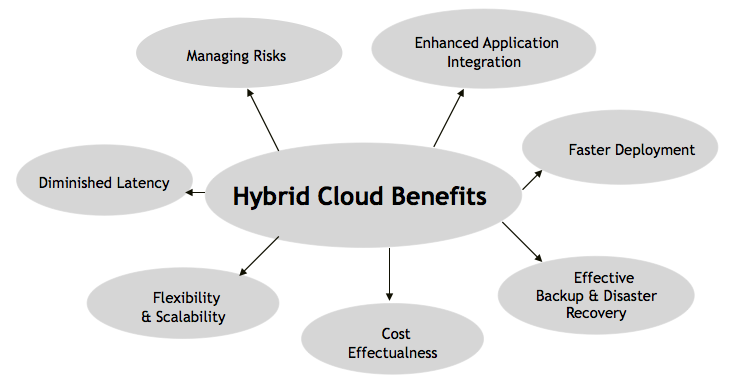A hybrid cloud is an ideal option for organizations leveraging the benefits of both public and private clouds. It provides a safe middle ground between them that allows businesses to exploit the full potential of both environments without compromising security or compliance.
The question is, how hybrid cloud improve your business? An adequately architected hybrid cloud provides flexibility, agility, and scalability. It speeds up IT response to changing needs and enables business teams to deliver new digital services faster.
- Versatility – Keep Costs Down
With a hybrid cloud, businesses can choose the types of data they want to store on private or public servers. This helps keep costs down over the long run.
The flexibility of the hybrid cloud can also help companies keep their sensitive data safer. For example, businesses don’t have to worry about losing computers that contain critical information like financial documents or personnel records.
Similarly, the ability to back up files makes it easier for them to recover during a hack or website wipeout.
Another benefit of a hybrid cloud is that it allows businesses to transform their IT infrastructure at their own pace. This allows them to modernize applications quicker and eliminate barriers that slow down new digital services.
- Businesses can Meet Customer Demand
Scalability is a term that refers to the ability of a computer system or product to adapt to new demands easily and quickly. It can describe anything from software applications to financial markets or manufacturing.
When a system or product is scalable, it can be expanded in size and volume without changing significantly. This scalability can come from increased users, storage capacity, or transactions.
Businesses that proliferate require scalability to be able to meet customer demand. Using a hybrid cloud can allow you to scale up or down in response to demand while still maintaining control over your physical infrastructure.
- No One Steal Your Information
Regardless of whether your data is stored on-premise or in a public cloud, it’s important to ensure it is protected. If not, hackers could steal and use your information for malicious purposes.
Using a hybrid cloud setup allows businesses to take advantage of the benefits of both public and private clouds while maintaining security features that would be impossible if they were only using one. Choosing this setup also helps improve your business’s security and prevents cyber-attacks from affecting your operations.
Hybrid cloud security includes technical controls like encryption, access control, micro-segmentation, vulnerability scanning, workload security, and configuration management. Automation offers crucial support to help teams coordinate these tasks, reduce errors, and synchronize across all environments.
- Improve the Efficiency
Designed correctly, the hybrid cloud enables business agility to support new applications, accommodate development projects or address unexpected needs. It also enables organizations to adapt to changing demands without rebuilding or refactoring infrastructure.
A hybrid cloud combines public and private clouds to offer a consistent, portable platform for application workloads that can be deployed from different locations. This helps organizations respond to seasonal peaks in demand, meet data center consolidation goals, and reduce IT costs.
A hybrid cloud can also help keep sensitive, confidential, and proprietary information separate from general data that doesn’t carry these requirements. Smith said this is especially important for a company with multiple locations or regulated data that must be stored in specific local configurations.
Having a strong network connection is essential to take full advantage of a hybrid cloud setup. This can be achieved through a vast area network or dedicated networking services that provide additional security and uptime guarantees.

